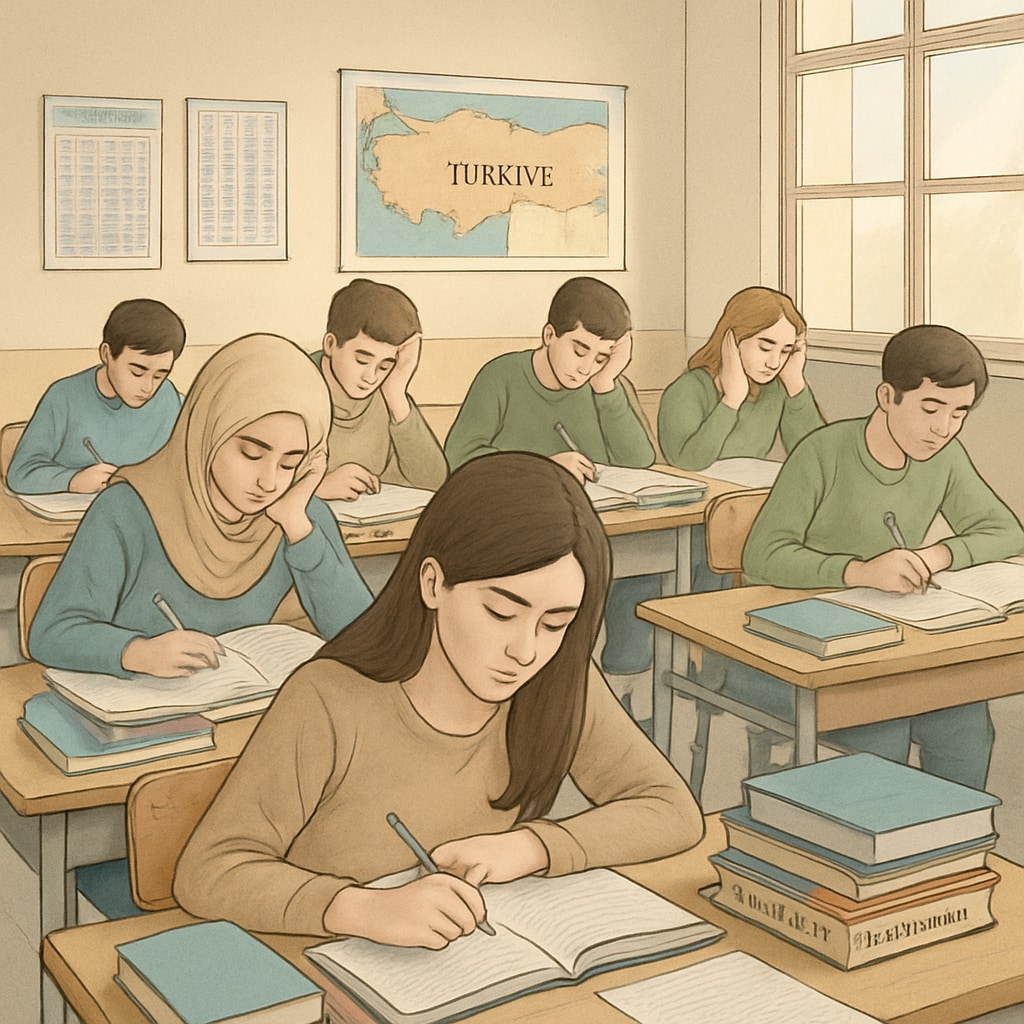Turkey’s education system, heavily reliant on standardized exams, has faced mounting criticism for fostering excessive exam pressure and stifling student creativity. In contrast, the UK’s A Levels model offers a more balanced approach, encouraging intrinsic motivation and innovation. As Turkey looks to reform its exam-driven structure, understanding the advantages of the A Levels framework could provide valuable insights for implementing effective changes.

Challenges of Turkey’s Exam-Driven Education System
Turkey’s exam-driven education system places an overwhelming emphasis on high-stakes testing, such as the national university entrance exam. This approach often leads to intense pressure on students, limiting their development in critical thinking, creativity, and problem-solving skills. Furthermore, the fixation on exam results leaves little room for holistic learning experiences, such as extracurricular activities or collaborative projects.
As a result, many students in Turkey struggle with disengagement and burnout, viewing education as a means to an end rather than a platform for personal and intellectual growth. This system also perpetuates inequalities, as wealthier families can afford private tutoring to optimize exam preparation, widening the gap between socioeconomic groups.
Education in Turkey provides additional context on the structure and challenges of the current system.
What Makes the UK’s A Levels System Different?
The UK’s A Levels model offers a potential alternative to Turkey’s exam-driven approach. Unlike Turkey’s single high-stakes exam, A Levels allow students to specialize in subjects they are passionate about. This specialization fosters intrinsic motivation, as students focus on areas aligned with their interests and career aspirations.
Additionally, A Levels assessments are spread across two years, incorporating coursework, practical evaluations, and written exams. This diversified evaluation method reduces the pressure of a single defining moment, enabling students to demonstrate their abilities over time. As a result, the A Levels system emphasizes critical thinking, research skills, and independent learning—qualities essential for success in higher education and beyond.
For more details, explore the A Levels system on Britannica.

Reforming Turkey’s Education System: Key Recommendations
To adapt insights from the A Levels model into Turkey’s education system, several reforms could be considered:
- Subject Specialization: Encourage students to focus on areas aligned with their interests to foster intrinsic motivation.
- Diversified Assessments: Introduce a combination of coursework, group projects, and written exams to evaluate students comprehensively.
- Critical Thinking Emphasis: Incorporate problem-solving and research-based activities into the curriculum to nurture creativity and innovation.
- Reducing Exam Pressure: Spread assessments over multiple years to alleviate the burden of high-stakes testing.
- Equal Opportunities: Increase access to quality education and resources for students from underprivileged backgrounds.
Such changes could pave the way for a more balanced and inclusive education system, empowering students to thrive academically and personally.
Conclusion: Building a Future-Oriented Education System
Turkey’s exam-driven education system urgently requires reform to address the challenges of excessive pressure and limited student development. The UK’s A Levels model provides a valuable blueprint for fostering intrinsic motivation, reducing stress, and promoting innovation. By prioritizing subject specialization, diversified assessments, and equal opportunities, Turkey can create an education system that truly empowers its students to succeed in an ever-changing world.
As a result, this transition could transform Turkey’s education landscape into one that values creativity, critical thinking, and lifelong learning, ultimately benefiting students, educators, and society as a whole.


